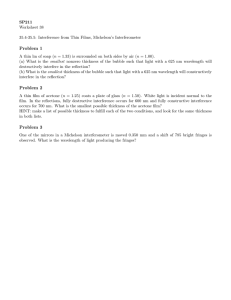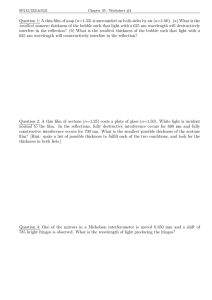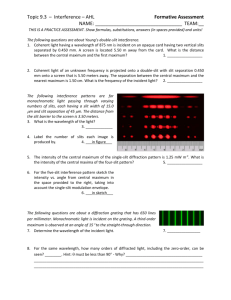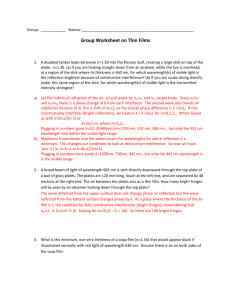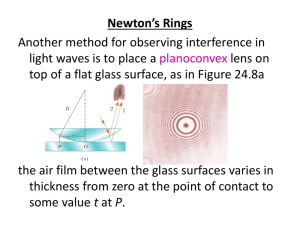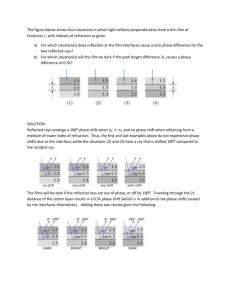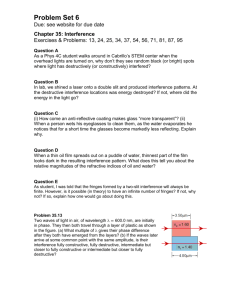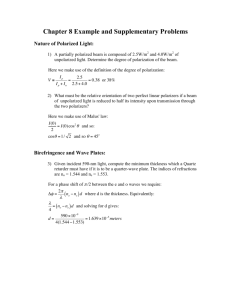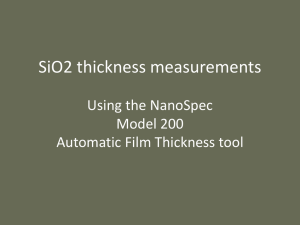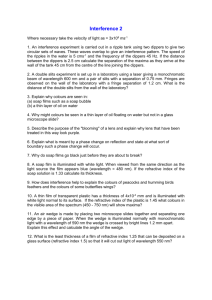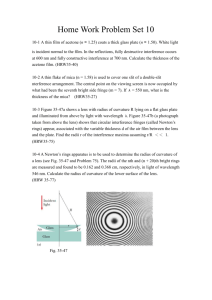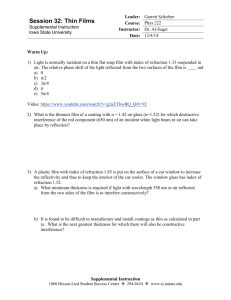Wave Optics Review
advertisement
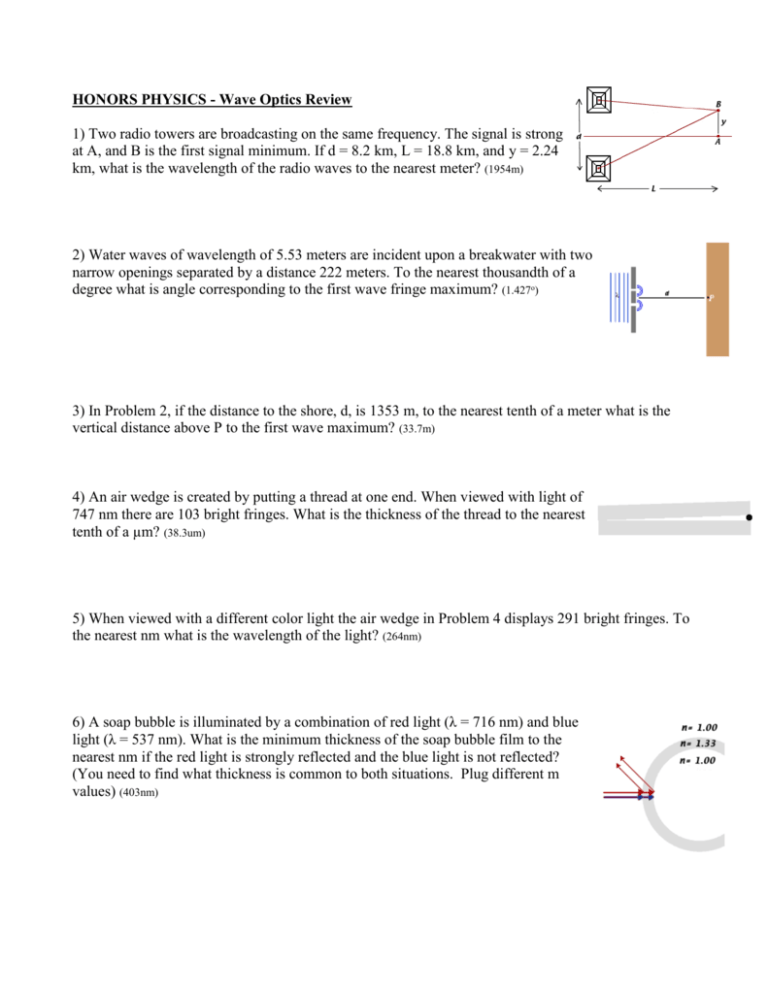
HONORS PHYSICS - Wave Optics Review 1) Two radio towers are broadcasting on the same frequency. The signal is strong at A, and B is the first signal minimum. If d = 8.2 km, L = 18.8 km, and y = 2.24 km, what is the wavelength of the radio waves to the nearest meter? (1954m) 2) Water waves of wavelength of 5.53 meters are incident upon a breakwater with two narrow openings separated by a distance 222 meters. To the nearest thousandth of a degree what is angle corresponding to the first wave fringe maximum? (1.427o) 3) In Problem 2, if the distance to the shore, d, is 1353 m, to the nearest tenth of a meter what is the vertical distance above P to the first wave maximum? (33.7m) 4) An air wedge is created by putting a thread at one end. When viewed with light of 747 nm there are 103 bright fringes. What is the thickness of the thread to the nearest tenth of a µm? (38.3um) 5) When viewed with a different color light the air wedge in Problem 4 displays 291 bright fringes. To the nearest nm what is the wavelength of the light? (264nm) 6) A soap bubble is illuminated by a combination of red light (λ = 716 nm) and blue light (λ = 537 nm). What is the minimum thickness of the soap bubble film to the nearest nm if the red light is strongly reflected and the blue light is not reflected? (You need to find what thickness is common to both situations. Plug different m values) (403nm) 7) The surface of a glass plate (n = 1.50) is coated with a transparent thin film (n = 1.25). A beam of monochromatic light of wavelength 6.0 x 10-7 m traveling in air is incident normally on surface of the glass. The beam is partially transmitted and partially reflected. A. Calculate the frequency of the light. (5.0x1014Hz) B. Calculate the wavelength of the light in the thin film. (480nm) The beam of light in the film is then partially reflected and partially transmitted at the bottom of the film. C. Calculate the minimum thickness d of the film such that the resultant intensity of the light reflected back into the air is a minimum. (120nm) D. Calculate the minimum nonzero thickness d of the film such that the resultant intensity of the light reflected back into the air is a maximum. (240nm) 8) Coherent monochromatic light of wavelength in air is incident on two narrow slits, the centers of which are 2.0 mm apart, as shown. The interference pattern observed on a screen 5.0 m away is represented in the figure by the graph of light intensity I as a function of position x on the screen. A. What property of light does this interference experiment demonstrate? B. At point P in the diagram, there is a minimum in the interference pattern. Determine the path difference between the light arriving at this point from the two slits. C. Determine the wavelength, , of the light. D. Briefly and qualitatively describe how the interference pattern would change if the slits are moved farther apart. Answers: 8a) interference b) 720nm c) 500nm d) pattern would shrink
